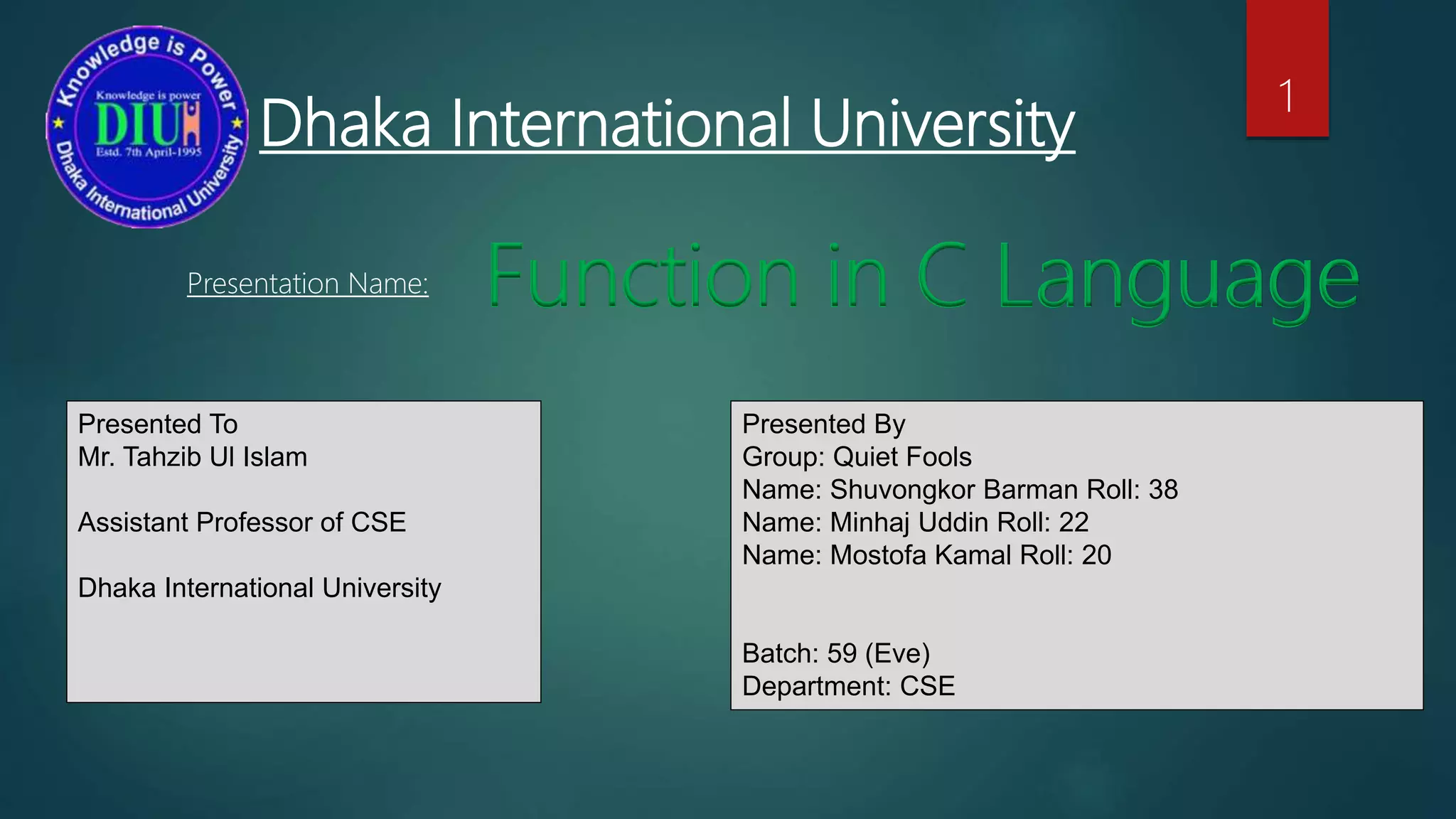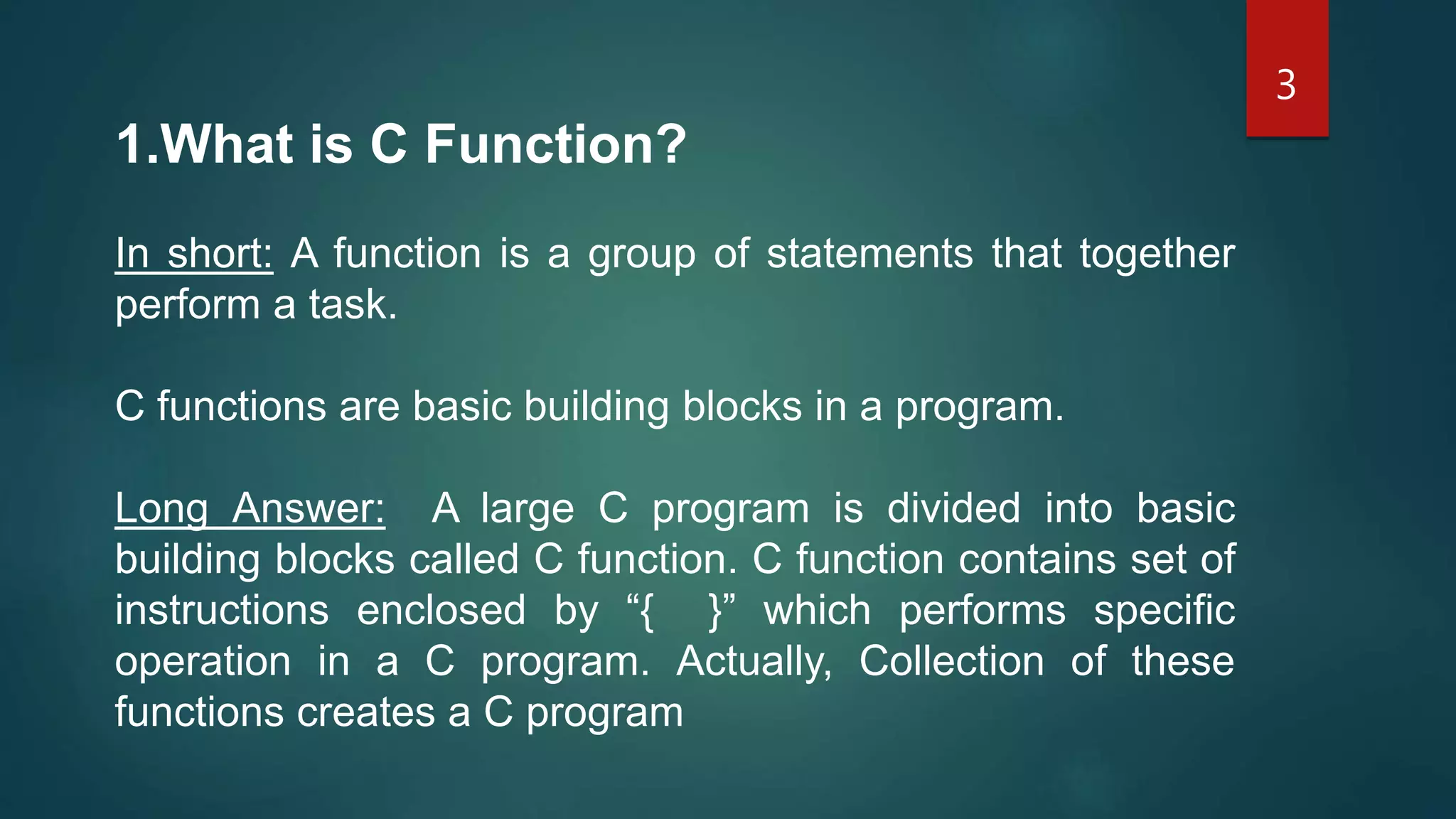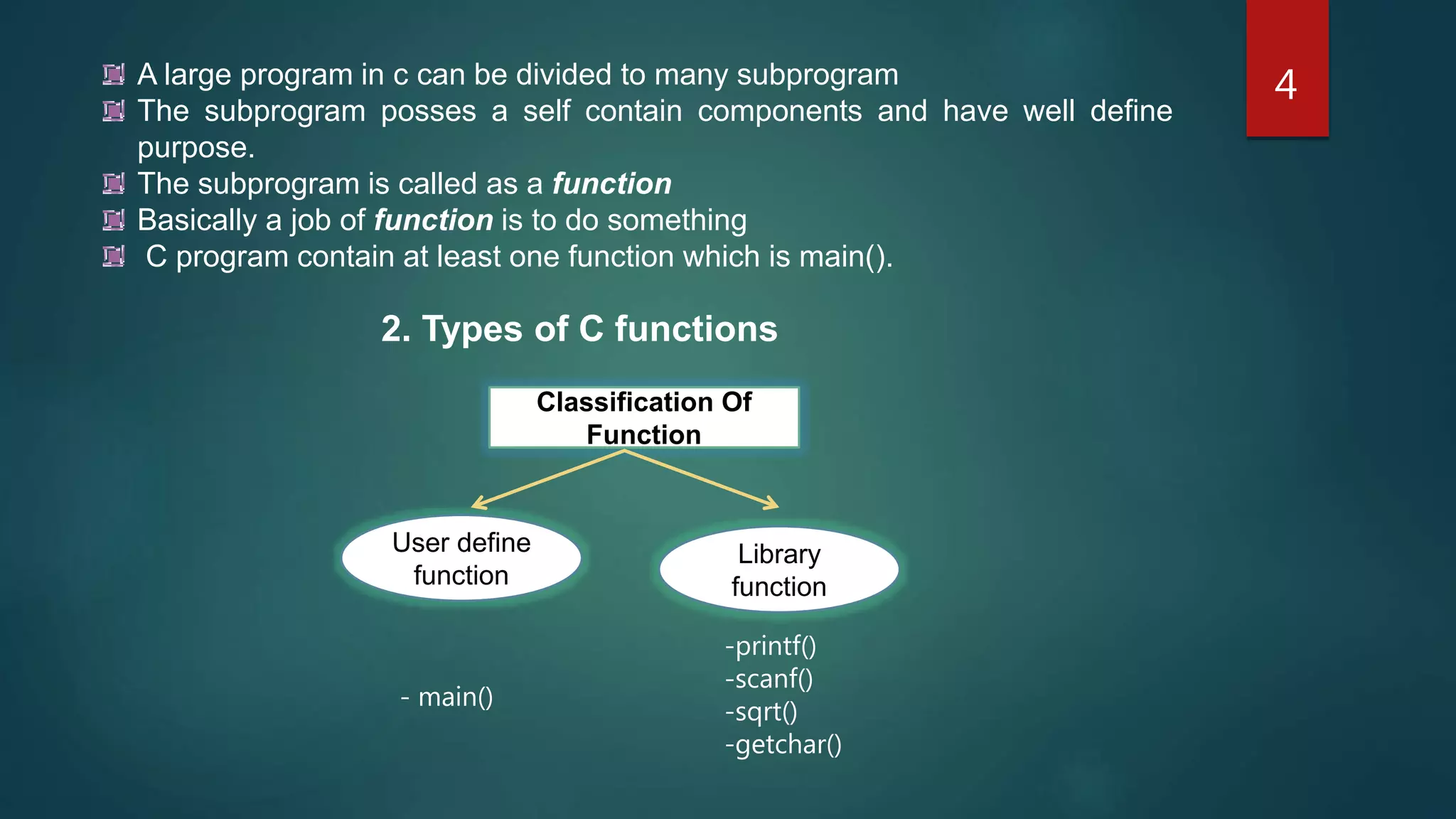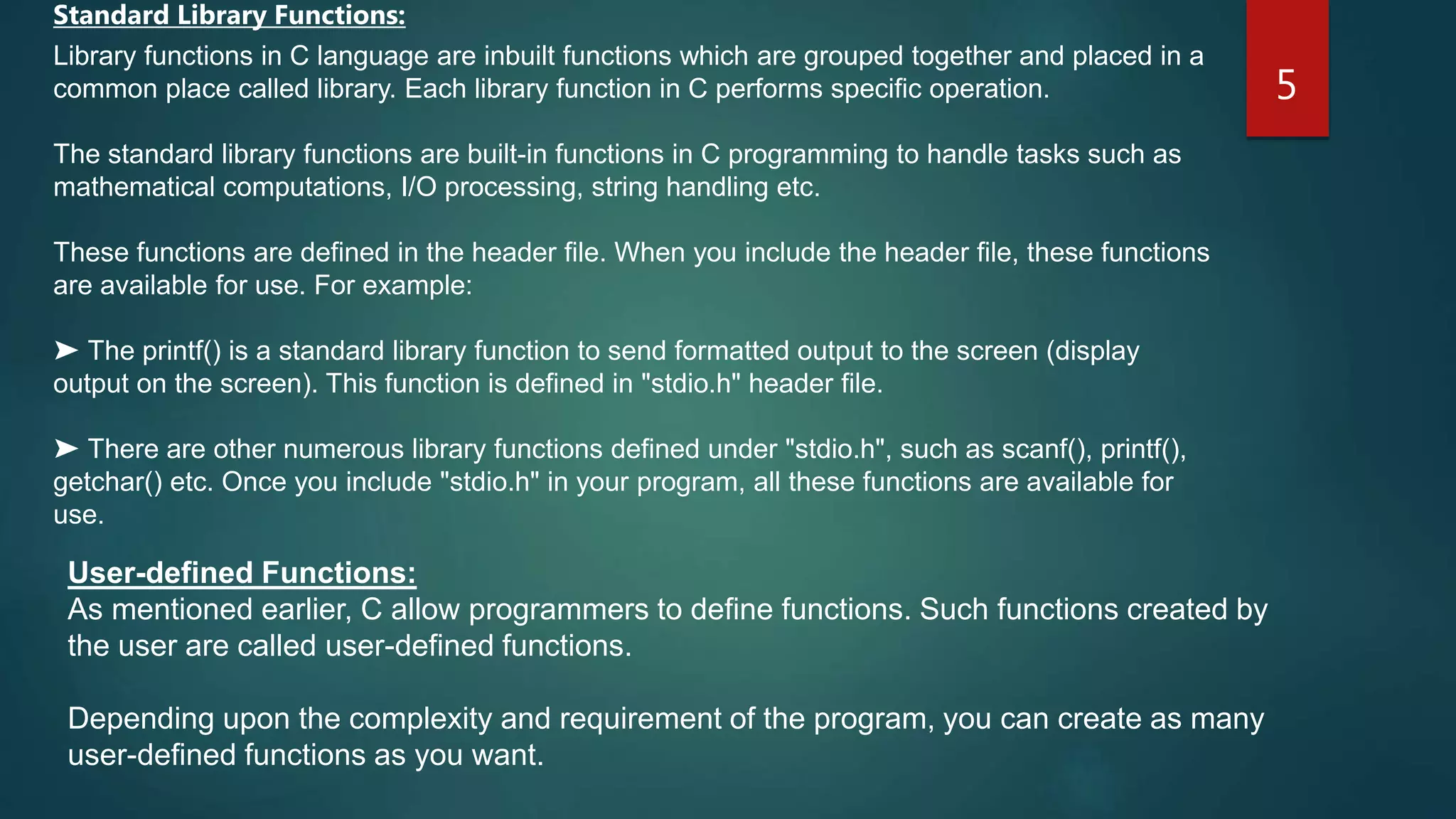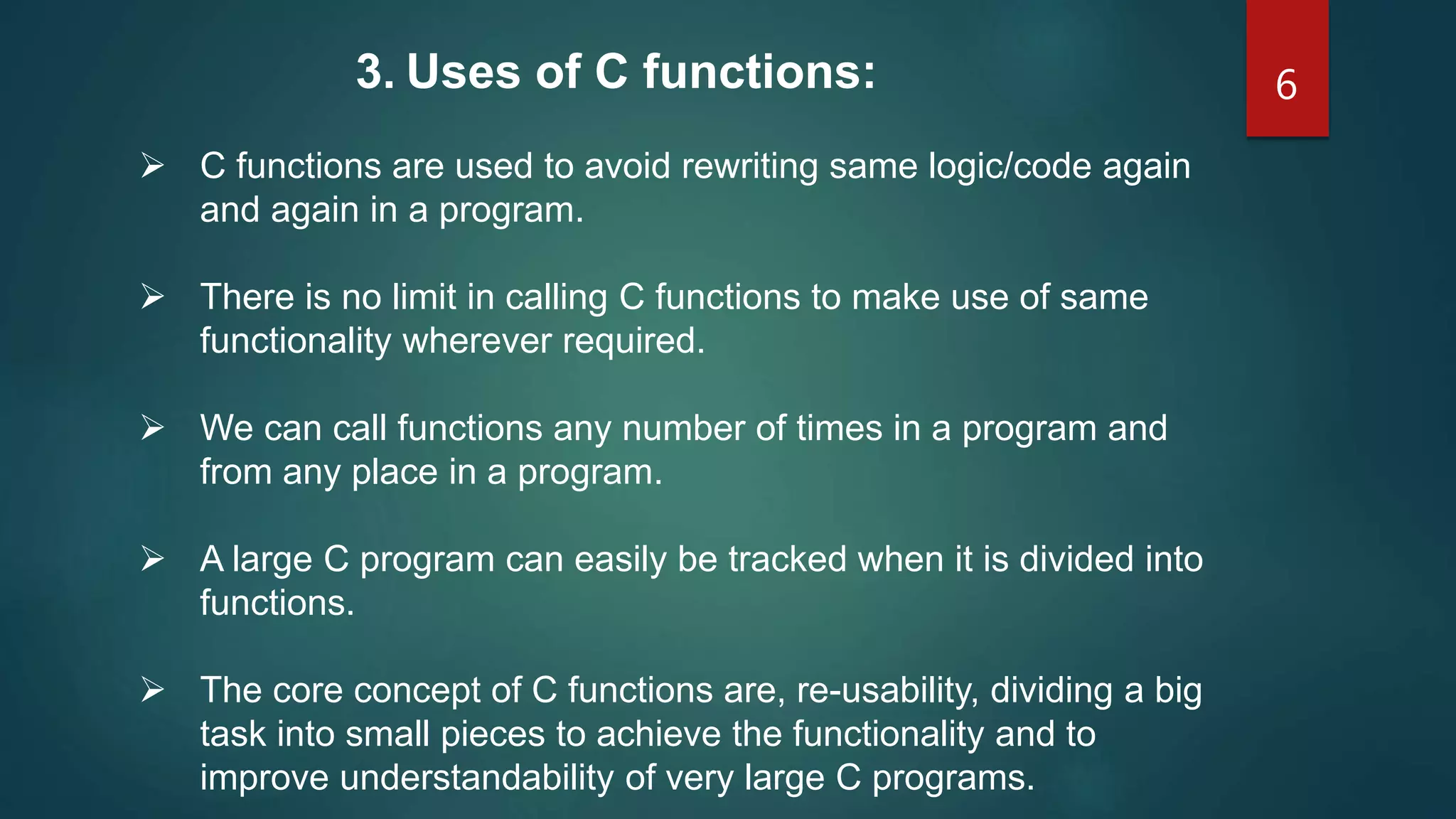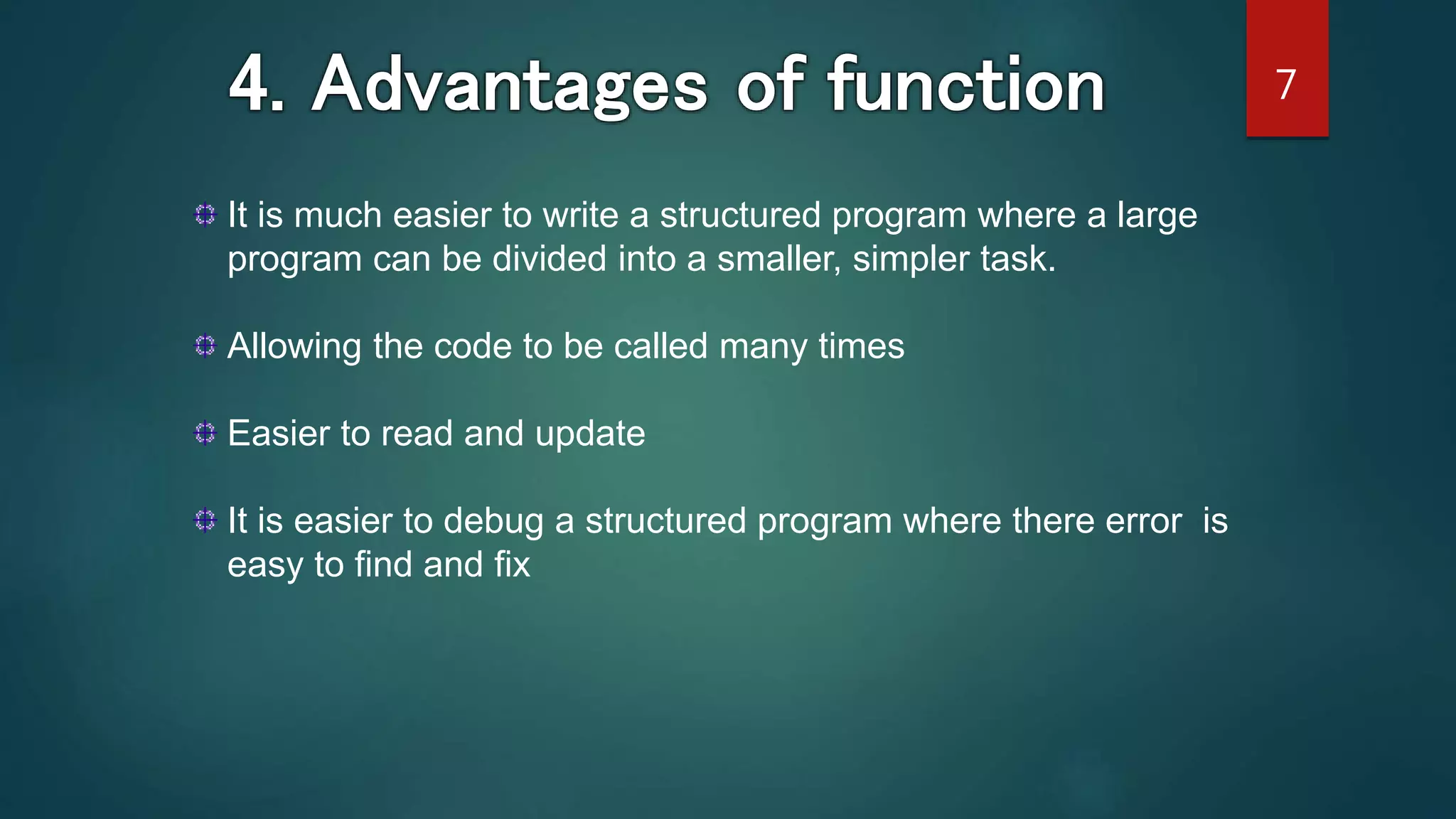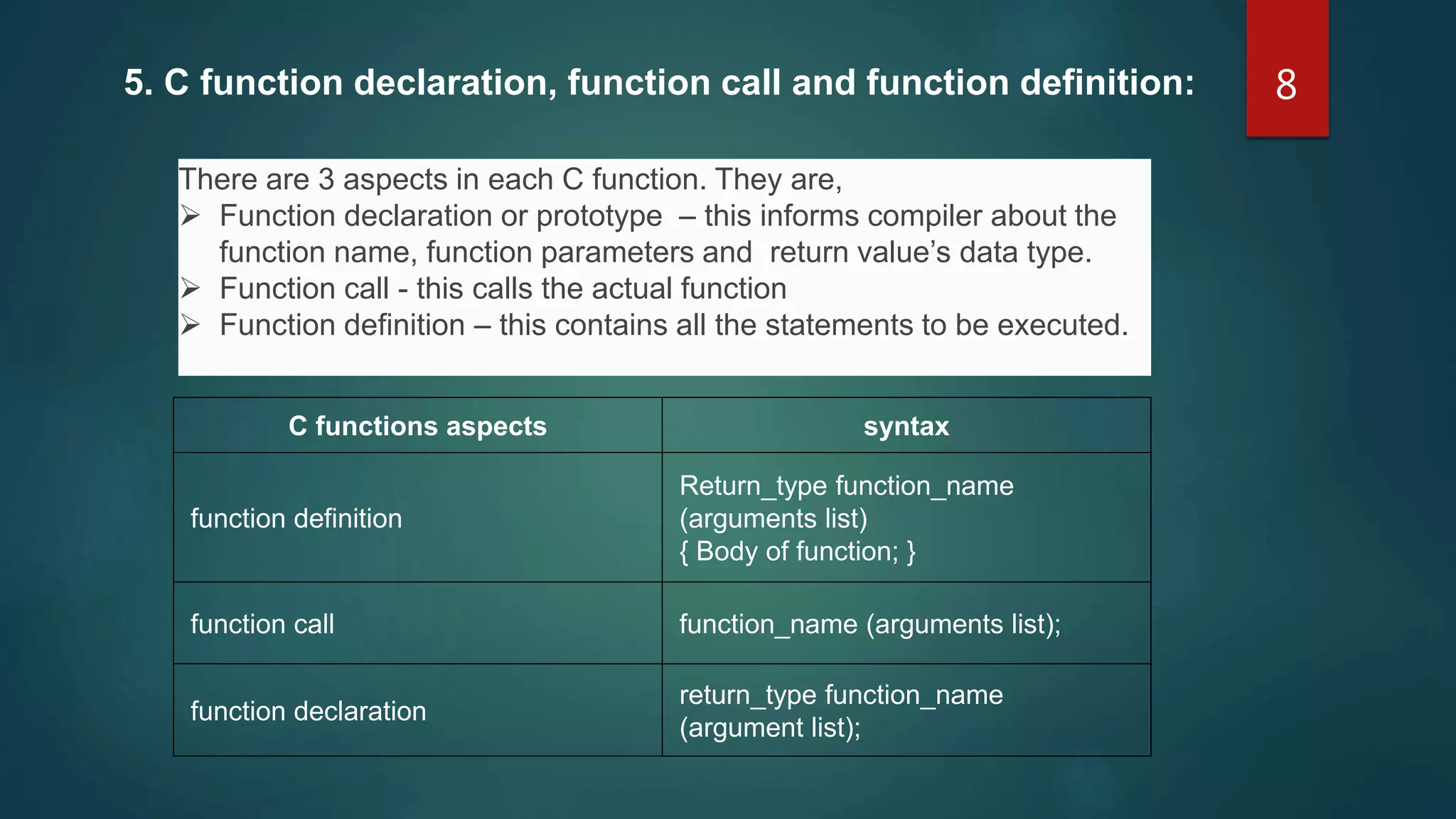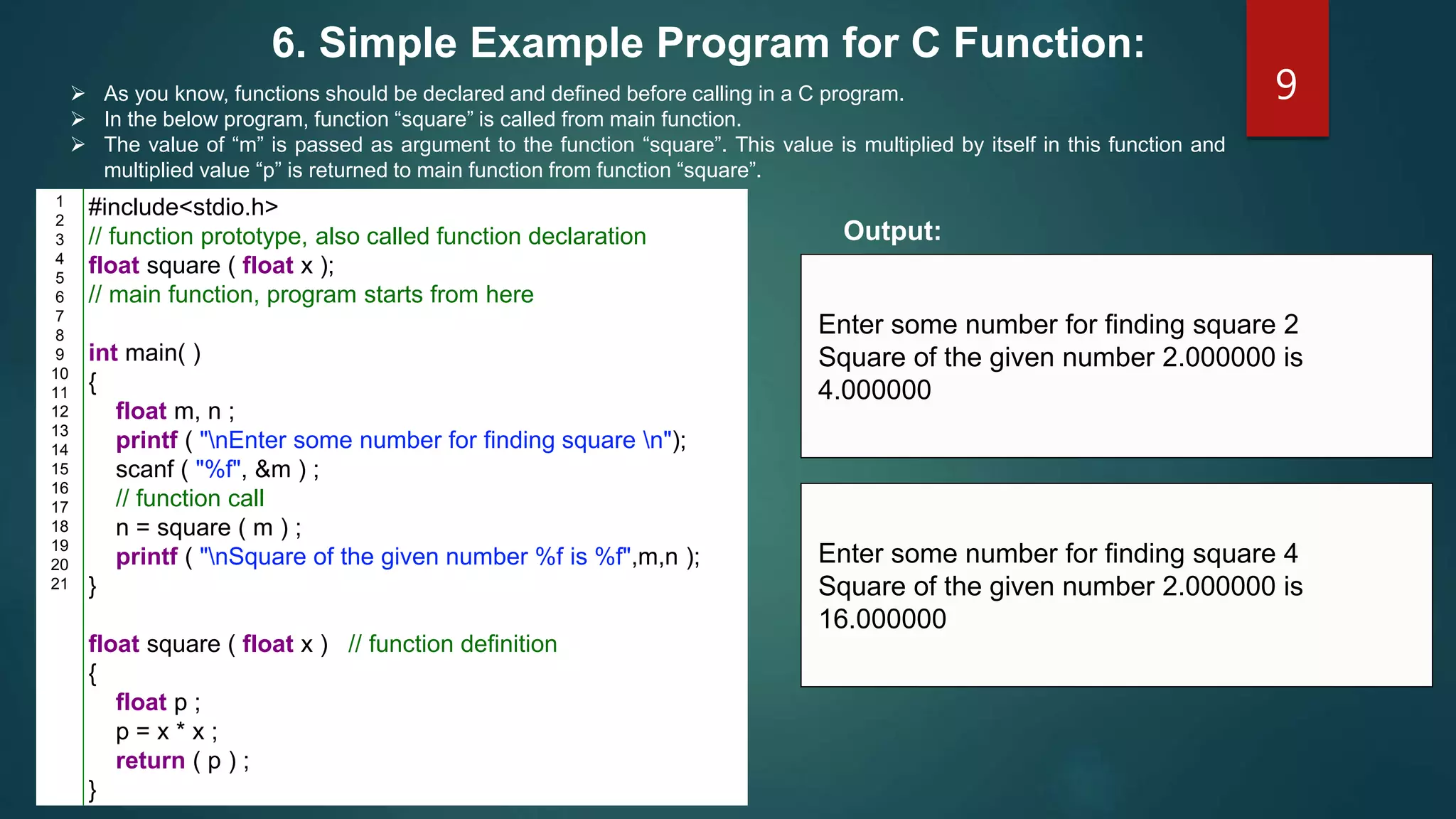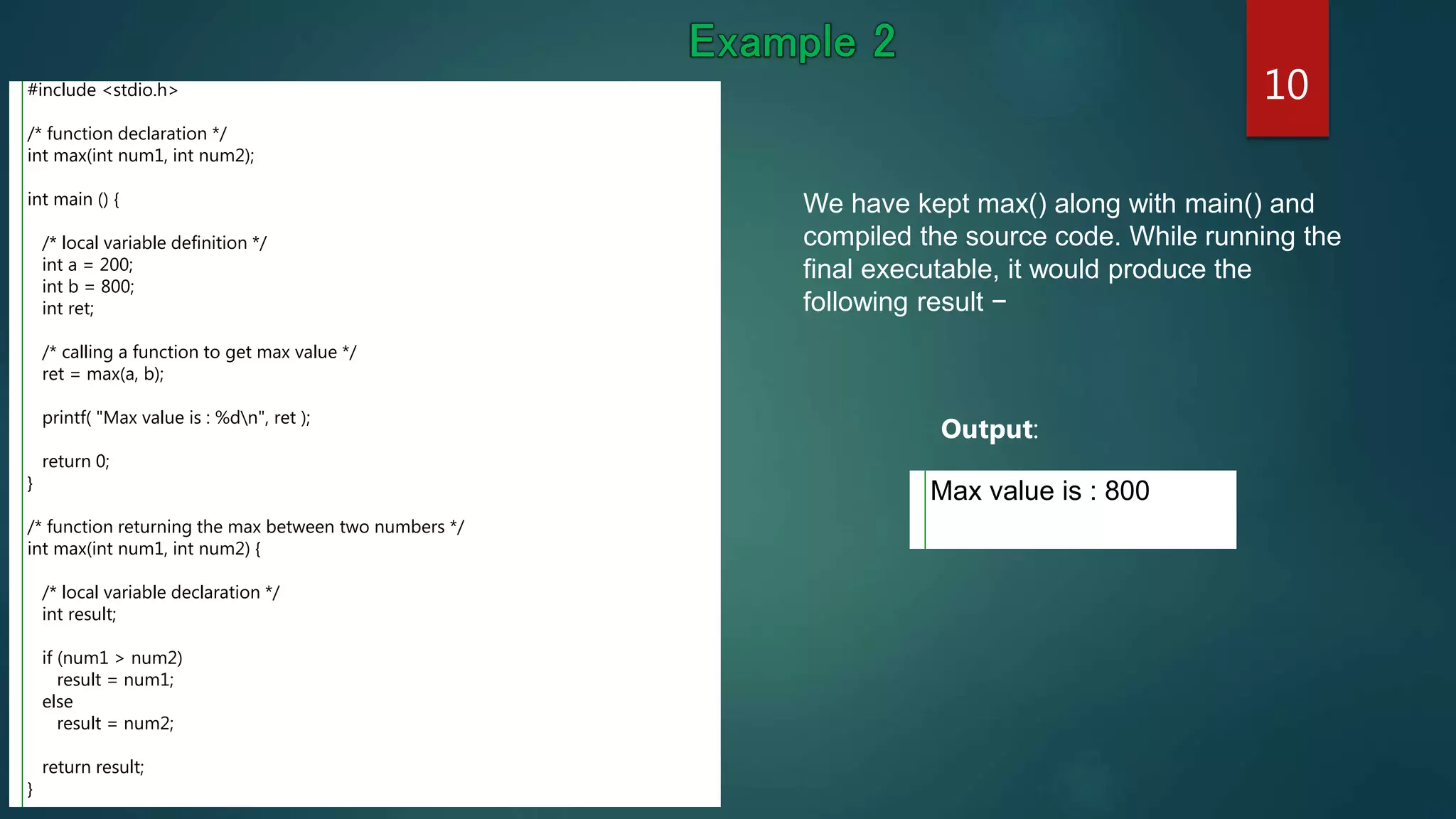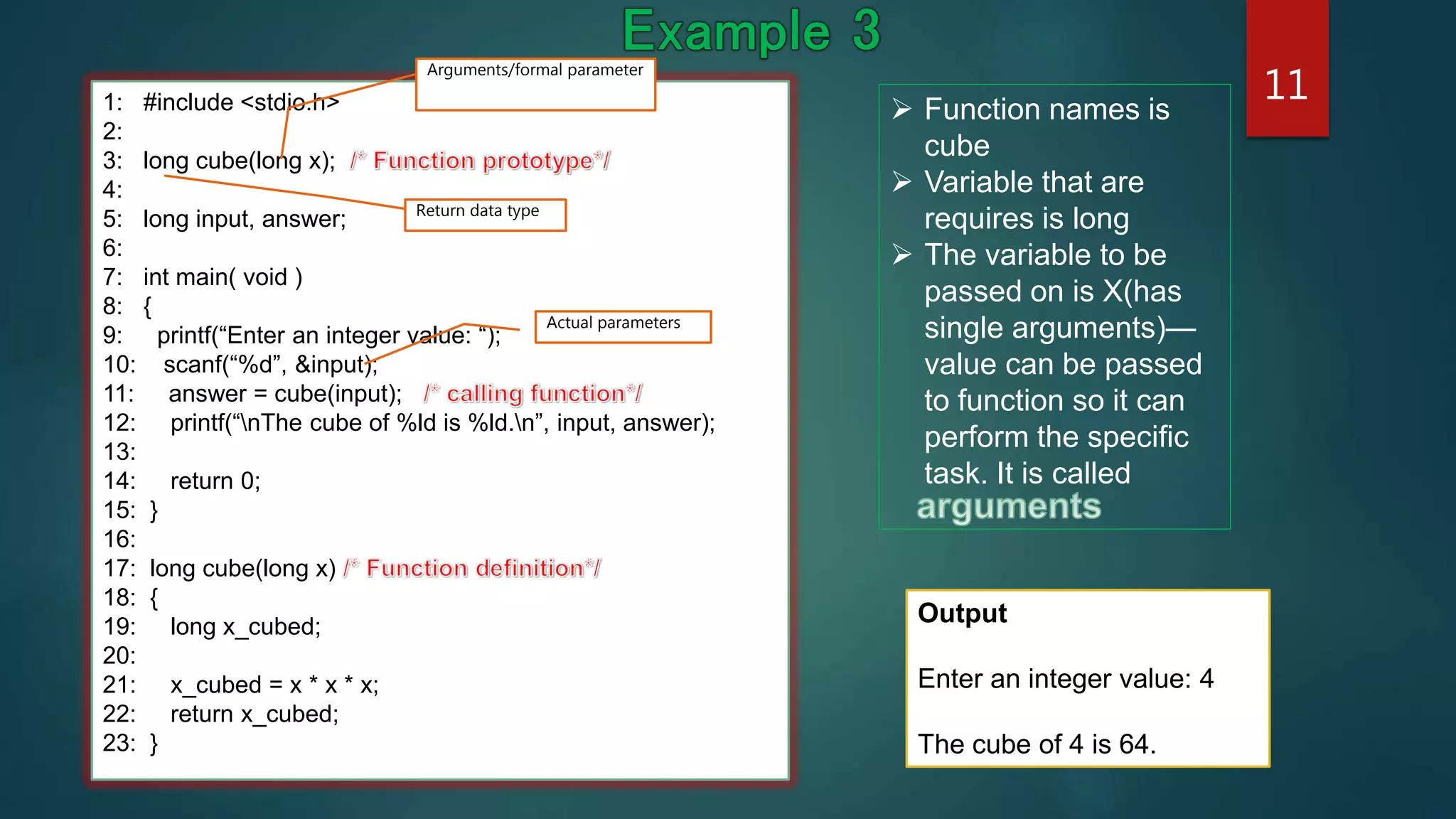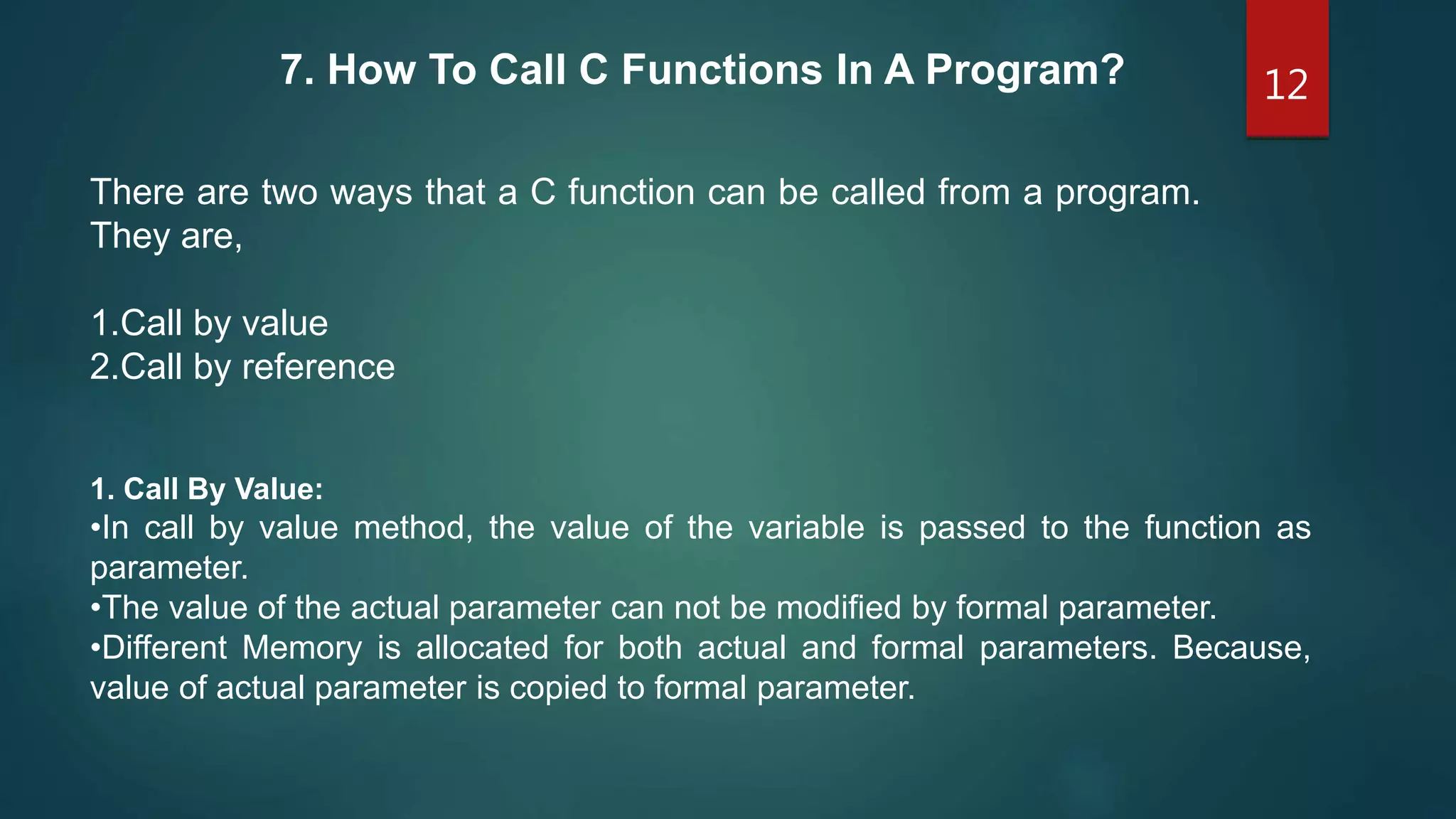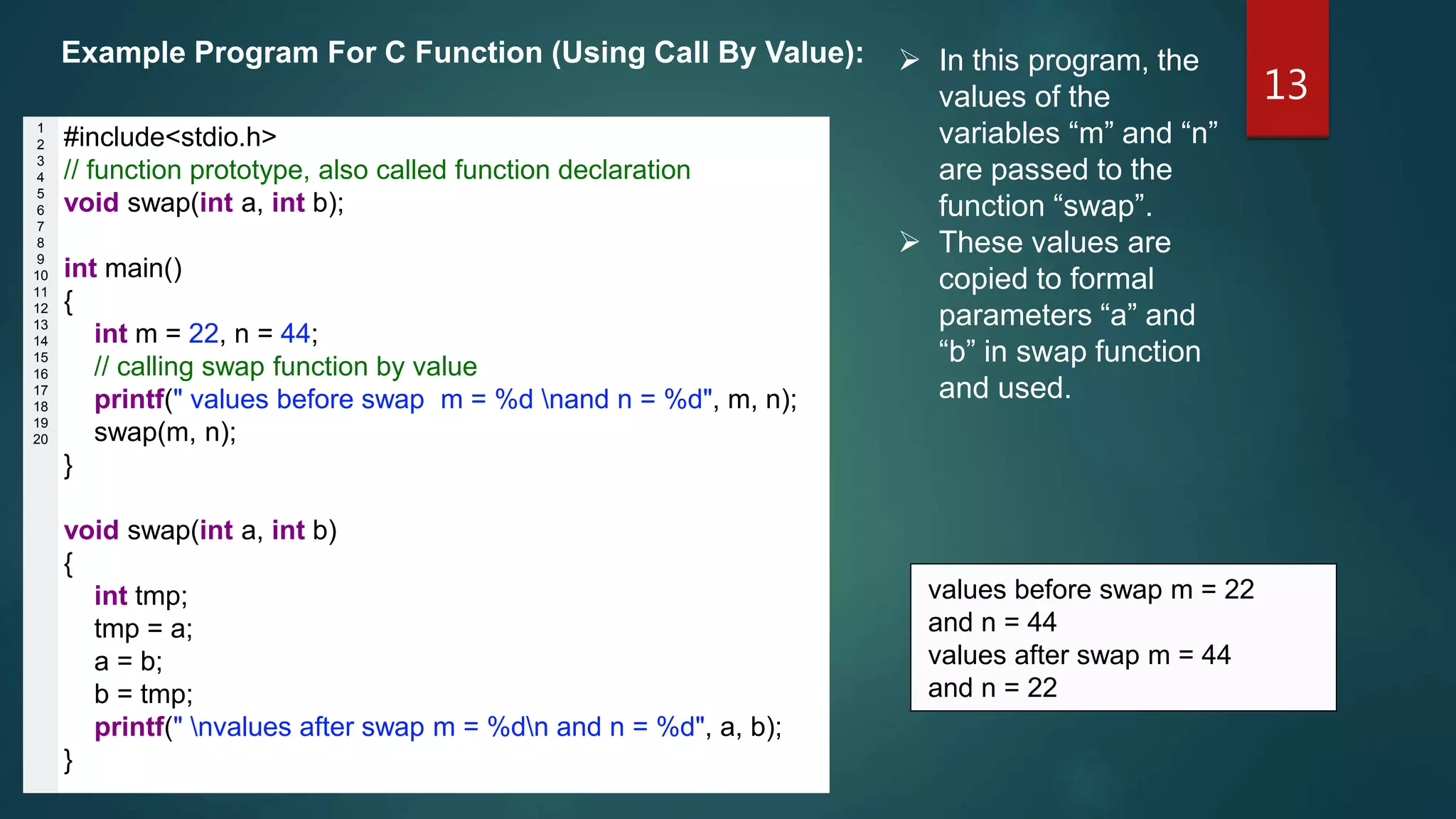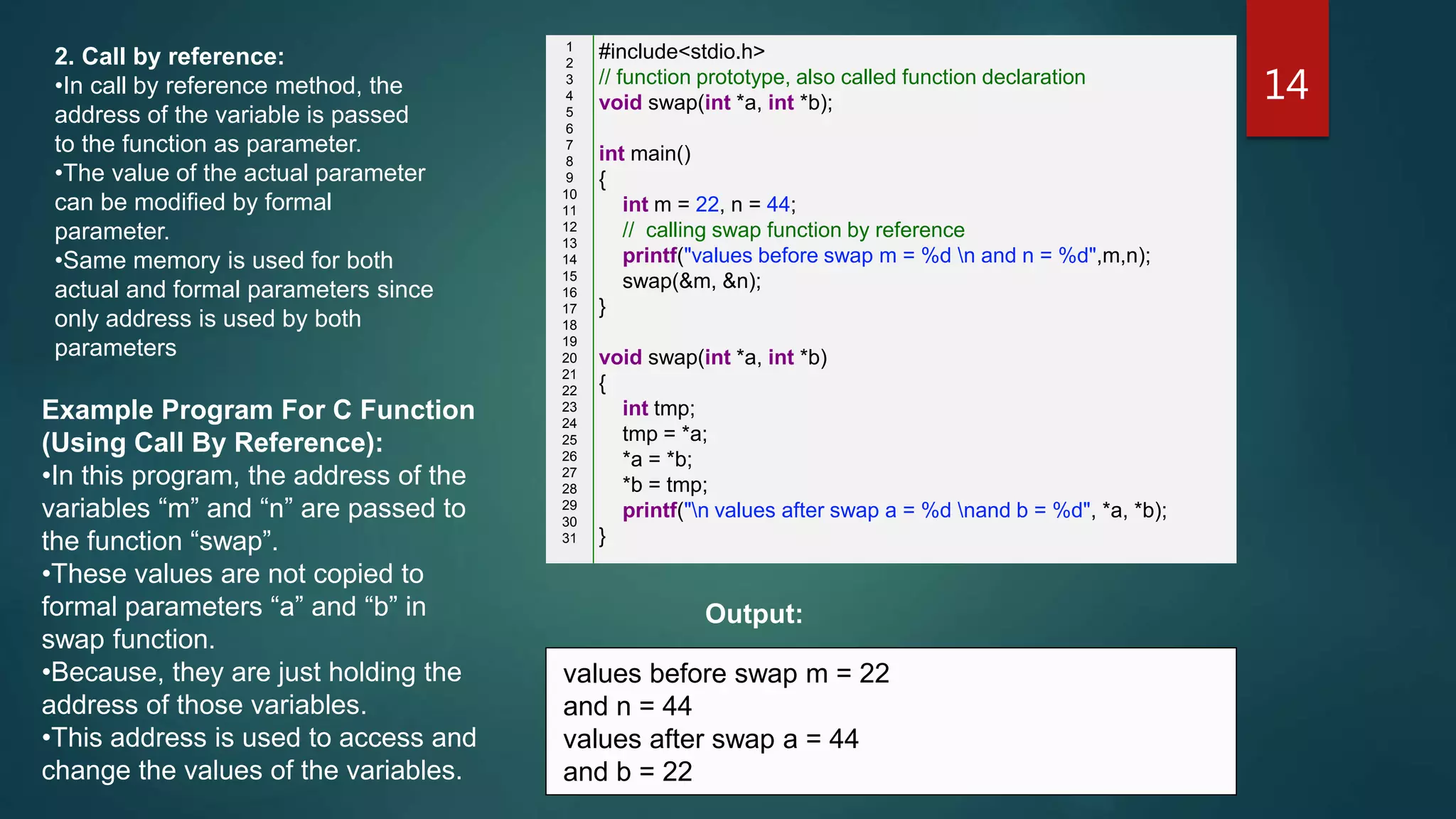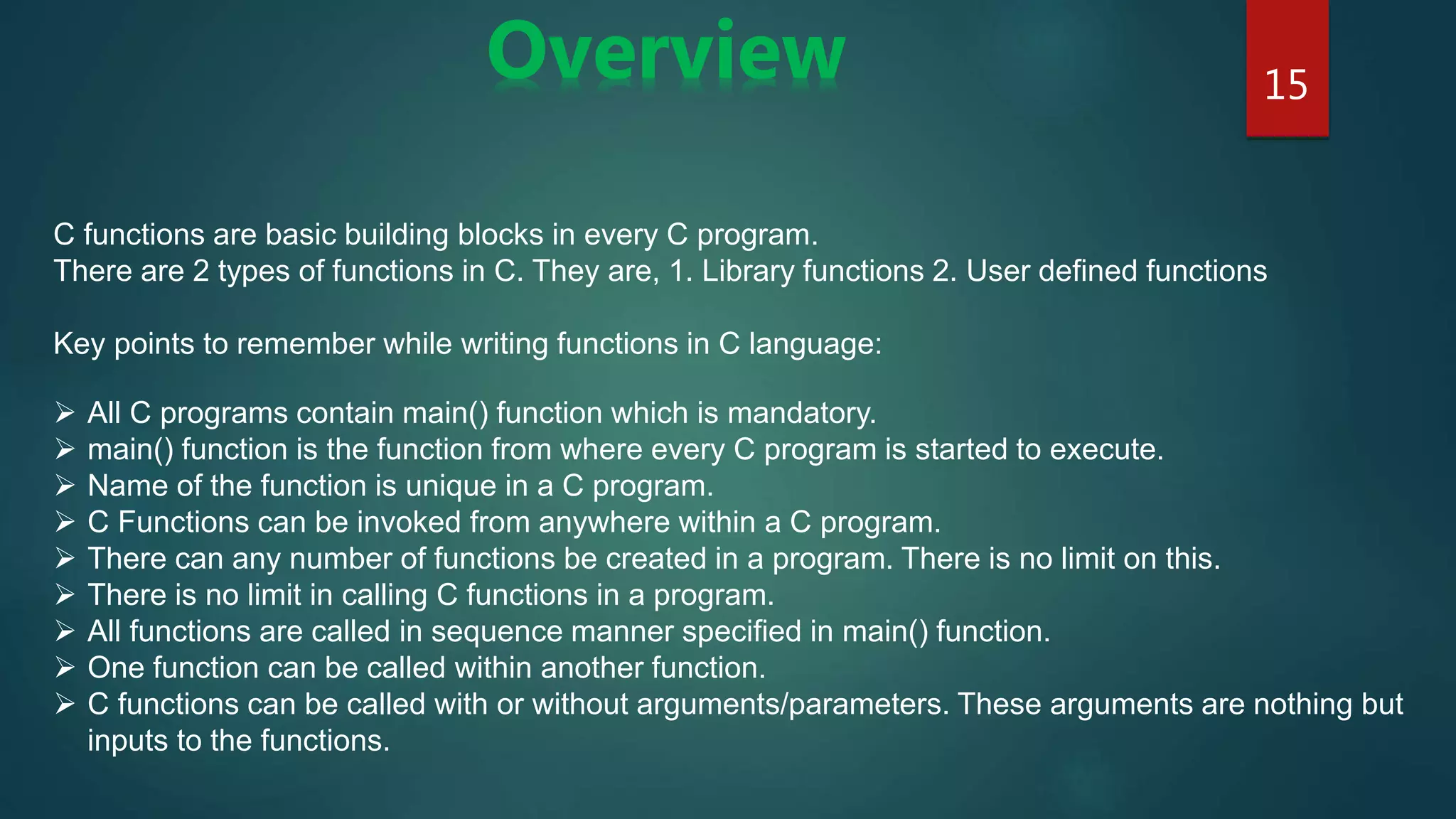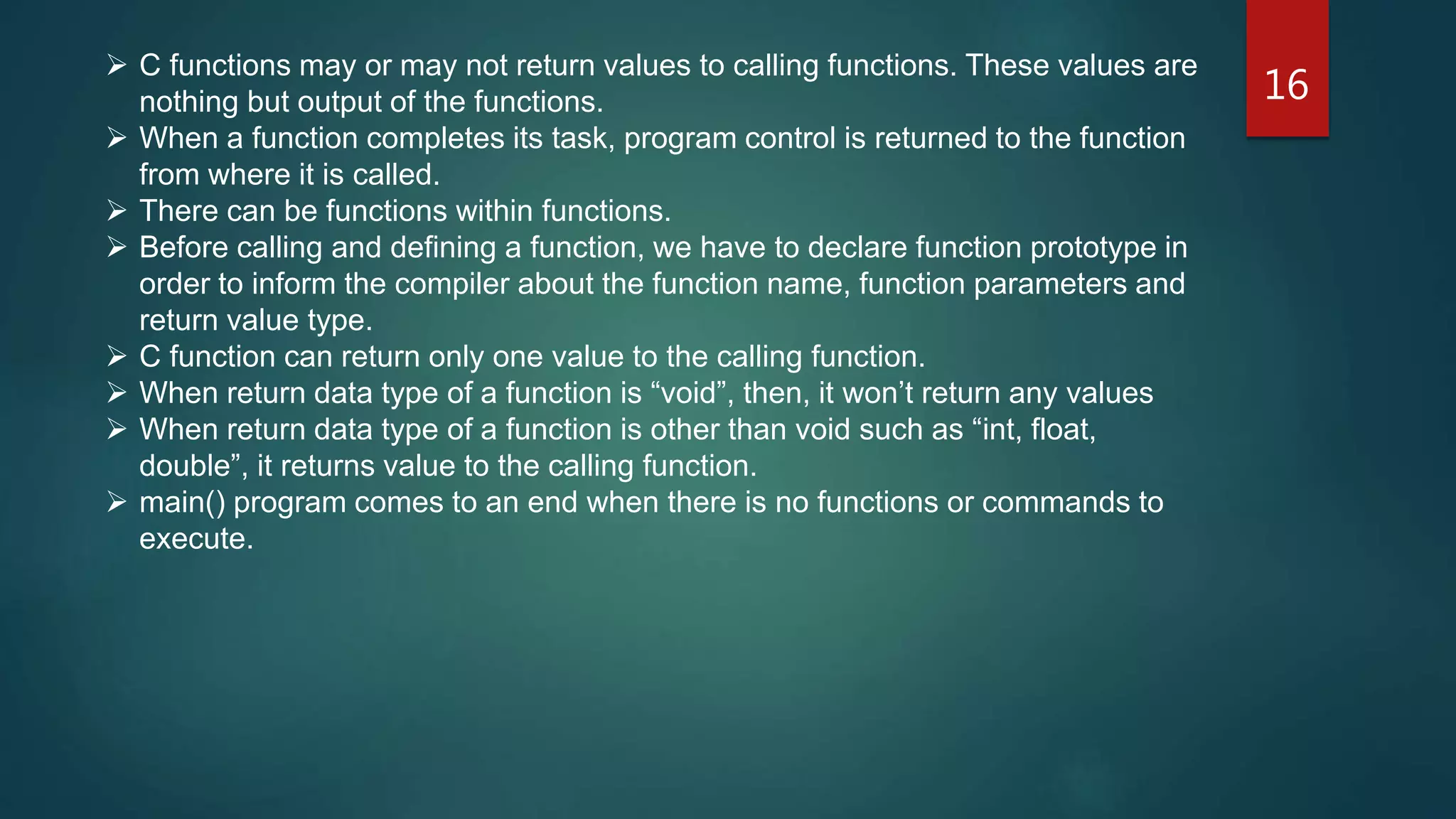The document presents information about functions in the C programming language. It discusses what a C function is, the different types of C functions including library functions and user-defined functions. It provides examples of how to declare, define, call and pass arguments to C functions. Key points covered include how functions allow dividing a large program into smaller subprograms, the ability to call functions multiple times, and how functions improve readability, debugging and reusability of code. An example program demonstrates a simple C function that calculates the square of a number.
